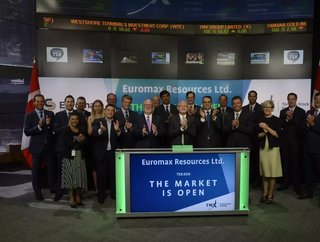Actimize: Helping miners to ‘de-risk’ financial operations

“Over the past 20 years, through a series of acquisitions, and being acquired by Nice, Actmize has expanded its portfolio to four primary lines of business,” explains Micah Willbrand, Global Director ABC (Anti-Bribery & Corruption). Actimize now employs over 1,000 people worldwide and is well-placed to extend its offering into the mining industry.
Willbrand says the catalyst for this expansion came about two years ago at the height of the FIFA corruption scandal. “We have a very strong transaction monitoring heritage using analytics and machine learning,” he explains. “What the FIFA debacle showed, and what our banking partners were telling us, was that a lot of the banks were going to get fined for processing FIFA bribes. The banks were saying: ‘These are rich people sending millions of dollars to buy a yacht, how are we supposed to know?’ You start to get into the customer experience, what’s over-reaching and what’s not, because the banks are very sensitive about continuing a policing role.”
Willbrand realised there was a way Actimize could help the corporate world detect potential illegal payments before they even reached the banks, and so adapted its monitoring to look at ERP systems which contain all the financial transactions for corporates. “We looked at the market and how various industries were approaching this problem and examined the extractors – oil, gas, mining – who have a really high exposure to bribery and corruption proceeds. A lot of the STPA regulations in the US are oriented to those industries. To help apply this from our standpoint, it starts with activity such as companies bidding on resource areas to drill for minerals in.”
Willbrand explains that a lot of mining companies hire third party sales agents to represent them in various countries. “An Australian company may be bidding on a project in Ghana, but if you don’t yet have a presence there you hire someone local to bid on that company and give them a commission fee. Normally that might be 5% of the contract value but you may have a situation where the agent says he can make sure you get the contract for 9%. That 4% extra is the bribe because he’s working with someone on the inside. That’s the type of activity we’re looking to detect. There are various other schemes, but that’s the most prominent, generating up to 80% of the fines handed out worldwide.
“Anti-Money Laundering offers a suite of products to help financial institutions detect potential money laundering, with everything from basic watchlist screening and PEP (Politically Exposed Persons) screening, looking for high risk individuals, to customer onboarding and credit risk grading. With fraud, we look at everything from deposits to credit card bust-out fraud and real-time analysis – again from the angle of looking at financial institutions. Through Financial Market Compliance we monitor broker/dealers and insider trading by doing comms and trading surveillance, looking for potential rogue activity from traders. This all comes together over our Enterprise Risk Case Management System which consolidates these alerts. We have a strong workflow so if one of our tools does find nefarious activity, it can route it to our investigators and give them the ability to file an immediate report with a government agency.”
Nice Actimize has worked with former criminals who gave bribes in order to learn how they did it, which helps with the development of the analytics tools it can offer. “In the mining industry we’ve learned about the nuance of how bribes are pushed through and hidden within various systems,” reveals Willbrand. “We’re not just doing simple payments here. There are many factors relating to your position and behavioural context.” By examining travel data, Actimize found that the internal sales agent dealing with the third-party agent was, more often than not, complicit with company funds. Businesses that need a reality check on how safe its processes are can benefit from the Actimize solution. “You start to see how the behaviour of employees and suppliers can be related,” adds Willbrand. “Bribery and corruption is like a cancer within a business and mining is no different, it grows if it’s left to evolve. It’s a board level concern and as such we’ve had a lot of interest from the industry and believe we have a proactive and informed tool to root it out and expunge it from any organisation.”
As a cloud-based service, Actimize carries the advantage of being built into ERP systems, which Willbrand believes is a real value add allowing it to go into procurement, accounts payable, accounts receivable and into the heart of the business in the general ledger. These ERP systems vary from company to company, where they may have up to 80 localised ERP systems, an SAP or a JD Edwards.
“The cloud solution enables us to operate in multiple regions and having it hosted throughout the world it brings all of that ERP data together,” says Willbrand. “With the machine learning and AI that we employ, we can detect overpayment schemes. We watch so you don’t have to. We have 20 years of experience working with former criminals and learning about how they do what they do, so that machine learning can adapt very quickly to new ways of processing nefarious payments. Instead of an overpayment to an agent, maybe they move to a bonus structure where the bonus is the bribe. The AI can pick up that unusual activity coming through the system a lot quicker than a human can,” he confirms.
Though it’s a new concept for the industry to embrace, Willbrand says the feedback has been positive. “Most of mining’s detection has been focused on whistleblowing around travel and expense policy. If you’re talking to a chief ethics officer or compliance professional, this is what they’ve been looking for, but there is education to be done in the wider realms of these organisations to get them to buy in,” he concedes. “We are getting internal champions at these companies, but there is learning required to move forward.”
However, Willbrand admits the challenges around whether companies should be proactive still endure. “There may be an element of, do we actually want to do this? The modus operandi has normally been, stick your head in the sand and hope it doesn’t bite you. Now we’re talking about proactively coming forward and reporting this activity to the government without them even asking, which is a risk that companies need to be comfortable with, so we are prepared to manage the politics that go with that.”
It’s one of the reasons Actimize broadened its solution beyond monitoring to include advanced whistleblowing capabilities. “We found these programmes are not run well from a case management perspective. A lot of it’s done on share points and via email,” notes Willbrand. “We can create dedicated workflows that allow for anonymous whistleblowing, not only for bribery and corruption but health and safety, which is hugely important in the mining industry. We’ve seen an uptake in interest in these systems becoming more formal, starting with small projects.” Those projects began with a beta launch in July 2017 when Willbrand realised that, as well as providing ABC, there was a value add with an ROI point around the fraud and waste element which highlights the abuse of travel and expense policies, and could allow companies to save up to 15% on their expense budgets.
Looking ahead, Willbrand is targeting more analytics with better tools for detection. “Our rules and known methodologies are one area, but expanding that bank along with our business intelligence is key. How do you report up to your CEO? How do companies manage risk in this area? We’ll be looking to provide more business intel tools to help them run reports efficiently across their entire ABC solution, encompassing all mitigation strategies.”
He concludes: “To educate the mining industry is key. We’ll be doing more work around M&A as there is a lot of divestment, acquisitions and consolidation activity in the industry right now. When you’re acquiring a company, you’re taking on their bribery and corruption risk – that’s a big area for concern. We’ll be developing tools to help companies de-risk when doing divestments by creating a framework to support assurances about the risk they carry going forward. Or, if they are looking to acquire, we can help them work with that company in a transparent way so they can see what their exposure is. You don’t want to pay £100mn for a company and end up with a £500mn STPA violation.”






